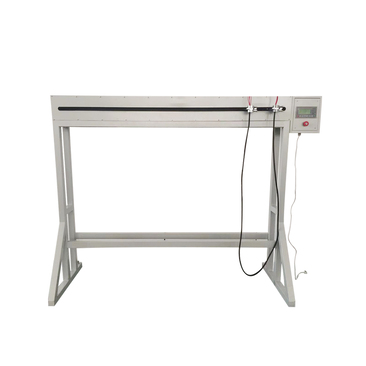Custom Tensile Strength Measurement Equipment for Accurate Testing and Analysis
Understanding Custom Tensile Force Testers
In today's manufacturing and engineering landscape, the importance of quality control and material testing cannot be overstated. One of the critical aspects of ensuring product reliability and safety is the evaluation of materials under tensile stress. This is where custom tensile force testers come into play, providing businesses with tailored solutions to meet specific testing requirements.
What is a Tensile Force Tester?
A tensile force tester is a device used to measure the strength of materials when subjected to tension. It evaluates how a material reacts when pulled apart, determining its tensile strength, elongation, and yield point. These parameters are essential for assessing the performance and durability of materials in various applications, from construction components to consumer products.
Standard tensile force testers often operate under fixed parameters which may not suit all materials or industry requirements. This is where custom solutions become vital. Custom tensile force testers can be designed to accommodate unique material properties and testing methodologies, thus offering more accurate and applicable results for specific applications.
The Need for Customization
Different industries have distinct requirements, influencing their choice of testing equipment. For instance, the aerospace industry demands rigorous testing for lightweight and high-strength materials, while the automotive industry focuses on materials that must withstand high stress and impact. Custom tensile force testers can be modified to meet the unique needs dictated by different standards, specifications, and materials.
Customization can involve various aspects, including
1. Load Capacity Different materials exhibit varying strength levels. A custom tensile tester can be designed to accommodate high-capacity loads for materials like steel or decreased load capacities for more fragile materials like composites.
2. Testing Speed The rate at which a material is tested can significantly impact the results. Tailoring the speed of testing to the specific requirements of a material can help in acquiring more accurate data.
3. Environmental Conditions Some materials may need to be tested in specific environmental conditions, such as varying temperatures or humidity levels. Custom tensile force testers can be engineered to maintain these conditions during testing.
4. Software and Data Analysis Modern tensile testers often come equipped with advanced software to assist in data collection and analysis. Custom solutions can integrate software that aligns with an organization’s data management systems, ensuring more streamlined reporting and analysis processes.
custom tensile force tester

Applications of Custom Tensile Force Testers
The applications for custom tensile force testers are limitless. In the construction industry, they are used to test the integrity of materials like cables, rebar, and insulation materials to comply with safety standards. In manufacturing, businesses can validate the performance of raw materials, ensuring that they meet the required specifications before production begins. The medical device industry utilizes tensile testing to ensure that components such as sutures and implants meet rigorous safety and efficacy criteria.
In the textile industry, tensile force testers help manufacturers assess fabric strength and durability, ensuring that consumer products meet quality standards. Additionally, in research and development, custom testers are essential for exploring the limits of new materials and products, aiding innovation and improvement.
The Process of Developing a Custom Tensile Force Tester
The process of developing a custom tensile force tester typically involves a few steps
1. Assessment of Needs Collaborating with engineers and quality assurance teams to ascertain specific testing requirements and constraints.
2. Design and Engineering Creating a design that accommodates the specified testing parameters, while integrating desired features.
3. Prototyping and Testing Building a prototype to trial and troubleshoot before finalizing the design.
4. Implementation and Training Installing the custom tester and providing necessary training to personnel for efficient operation.
5. After-Sales Support Offering maintenance and support to ensure long-term reliability and performance.
Conclusion
Overall, custom tensile force testers represent a critical component in a variety of industries where material performance is paramount. By investing in a tailored solution, businesses can enhance their quality assurance processes, ultimately leading to improved product reliability and safety. In a world where performance meets precision, custom tensile force testers provide the necessary tools to push the boundaries of material testing and innovation.
-
Why the Conductor Resistance Constant Temperature Measurement Machine Redefines Precision
NewsJun.20,2025
-
Reliable Testing Starts Here: Why the High Insulation Resistance Measuring Instrument Is a Must-Have
NewsJun.20,2025
-
Flexible Cable Flexing Test Equipment: The Precision Standard for Cable Durability and Performance Testing
NewsJun.20,2025
-
Digital Measurement Projector: Precision Visualization for Modern Manufacturing
NewsJun.20,2025
-
Computer Control Electronic Tensile Tester: Precision and Power for the Modern Metal Industry
NewsJun.20,2025
-
Cable Spark Tester: Your Ultimate Insulation Assurance for Wire and Cable Testing
NewsJun.20,2025
 Copyright © 2025 Hebei Fangyuan Instrument & Equipment Co.,Ltd. All Rights Reserved. Sitemap | Privacy Policy
Copyright © 2025 Hebei Fangyuan Instrument & Equipment Co.,Ltd. All Rights Reserved. Sitemap | Privacy Policy
